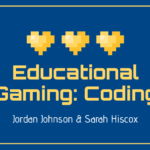Jeff Hopkins is the founder and principal of the Pacific School of Innovation and Inquiry (PSII). He started the independent school over 7 years ago in downtown Victoria and it is not your average high school.
PSII does not sort learners by age, have courses, schedules, bells, or follow the traditional B.C. curriculum. It does however, build its curriculum based on student interest, agency, and choice-giving students the skills they need to form an educated path to inquiry.
Student inquiry is a hot topic in education and I found it so interesting to hear, and see, how a curriculum can entirely be based on the inquiry process. PSII doesn’t want to just ‘simulate reality’ for its student’s with rote memorization and regurgitation of a formal curriculum, instead they have taken a deep dive into inquiry and the results are absolutely amazing!
What PSII Learners are Achieving
PSII students are connected with their city and their community. They are taught how to collaborate with different organizations, community members, and companies-a skill that is often not developed until post graduation. The inquiry model of learning allows students the freedom to study their interests-which creates a student body full of engaged and self motivated learners. PSII students are independent, yet can work collaboratively (when they choose to do so). Students are encouraged to develop real projects based on their inquiries which promotes entrepreneurship and moves formal education from the abstract to the actual. PSII students are writing grants, creating societies and businesses, implementing programs and art projects into the community and gaining skills that are putting them well ahead of their publicly schooled peers. So how do they do it?
The 5 Step Process of Inquiry at PSII
- Questioning: Students start their learning through questioning. Educators help students to discover their interests, passions, and what they want to learn about through a deep questioning process. What do you want to know? What skills would you like to have? What interests you? Jeff Hopkins described this as a (sometimes) lengthy process, but absolutely crucial to inquiry. Once a student has established a question they..
- Research: Research in this sense isn’t always ‘googling’ facts and researching books at a library but can also include: talking to peers and community members, scientific studies and experiments, surveys, dramatization, art, and seeking out and engaging with experts in their field of inquiry. Following this students…
- Come up with new questions: Once a topic has been researched, new questions always surface. It can be hard to know the right questions to ask before you have started to dive into your research. At this stage, students and educators work together to draw out what is relevant and important in regards to their inquiry topics. From here students..
- Develop learning activities: Once research has been achieved students are ready to apply their learning through learning activities such as: creating lectures and conferences, establishing community involvement, creating art shows and tangible products created from their inquiry. They also establish timelines, assessment ideas, and resource needs in this stage.
- Learning: The last stage of the inquiry process is learning. Students will take what they have learned, modify tasks and set short and long term goals for themselves. Here they will also work on assessment and reflection of their project.
Once an inquiry has been completed, they re-start the process on a new topic of choice.
I am extremely impressed with PSII and its thoughtful and individualized approach to student learning, motivation, and competency development. I hope to teach in a school like PSII one day and I would love for my own children to attend PSII or a school with the same values and processes. This is the kind of education that is required for a future generation of successful and competent learners who value their interests, skills, communities, and selves. PSII is really onto something.

PSII logo. Retrieved from: https://learningstorm.org/





